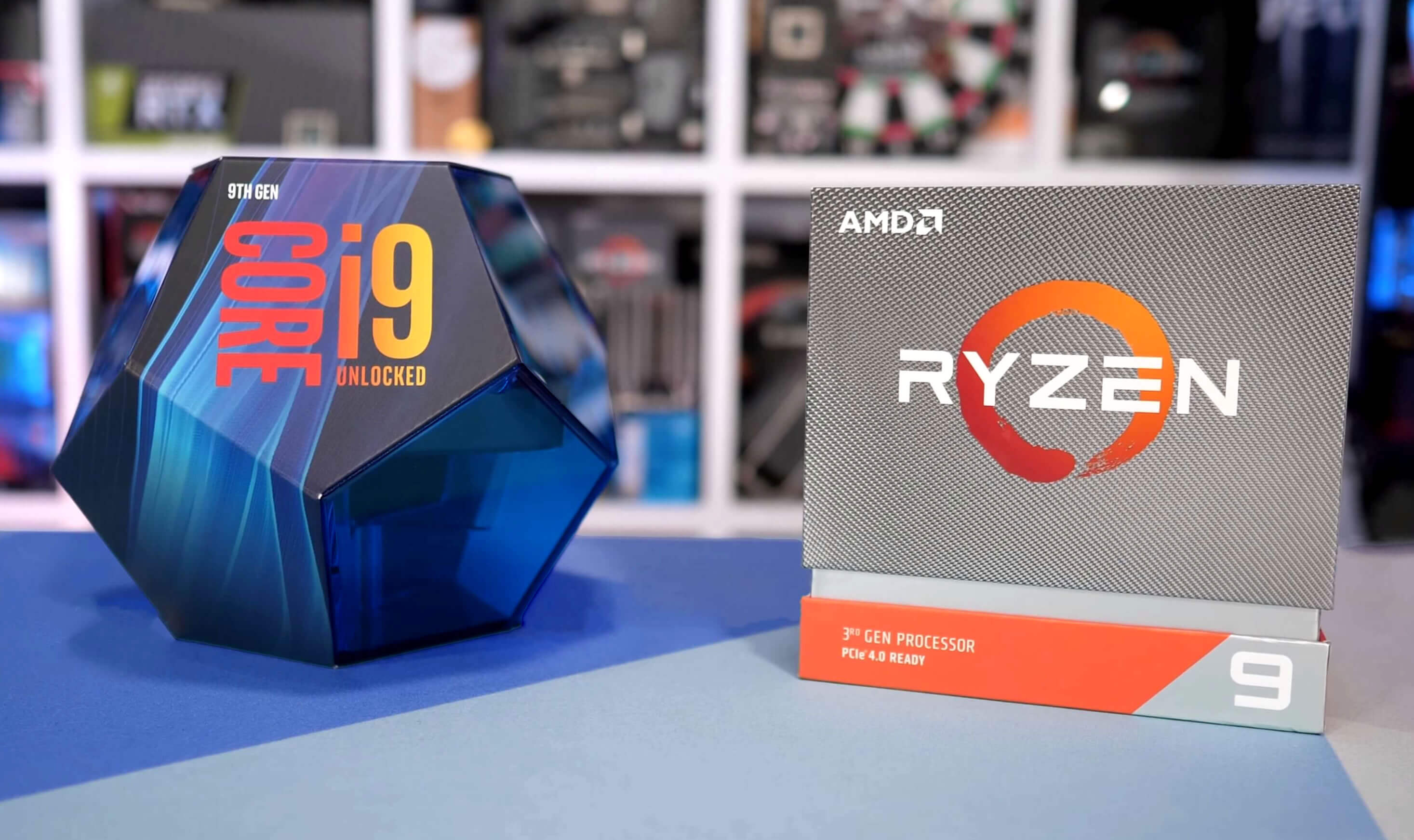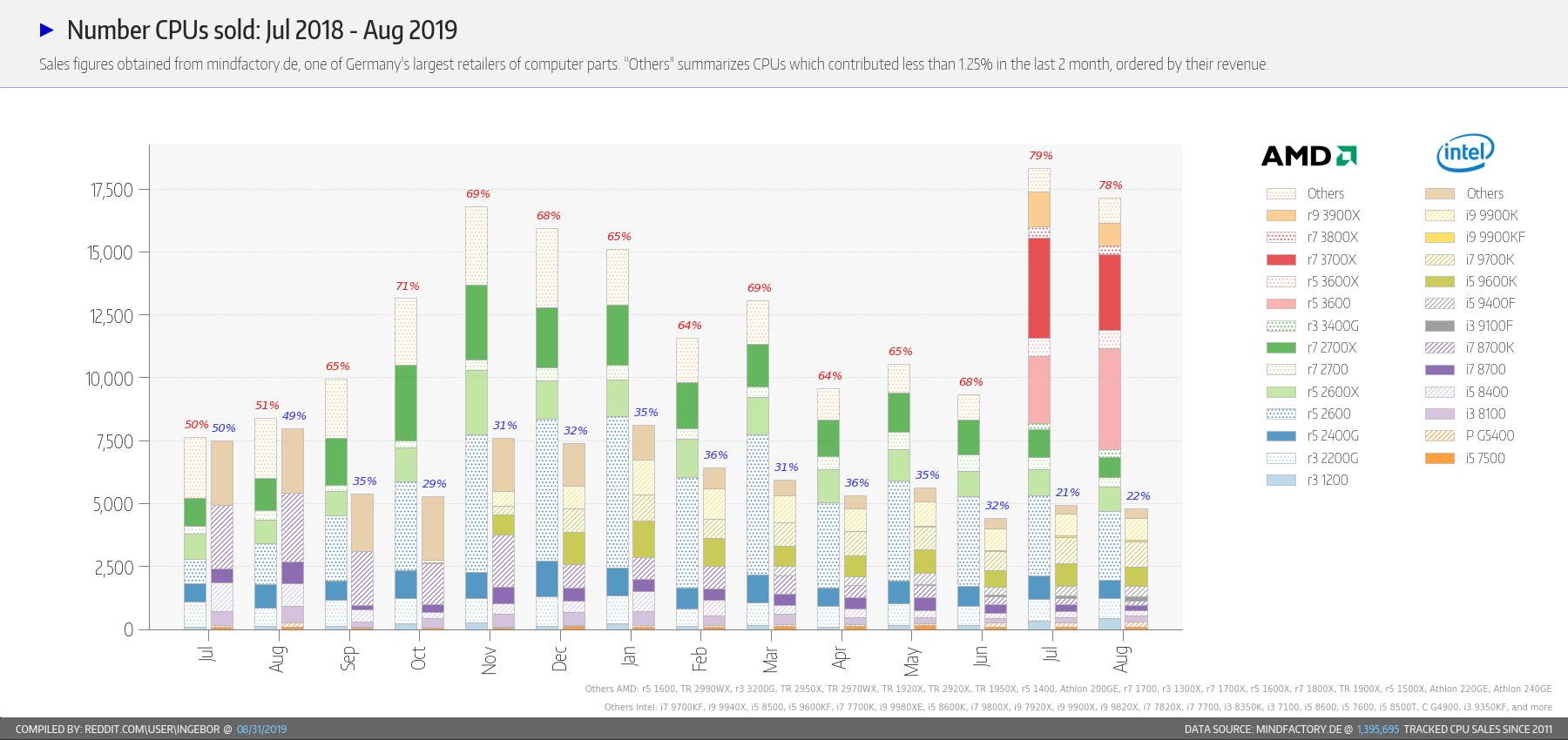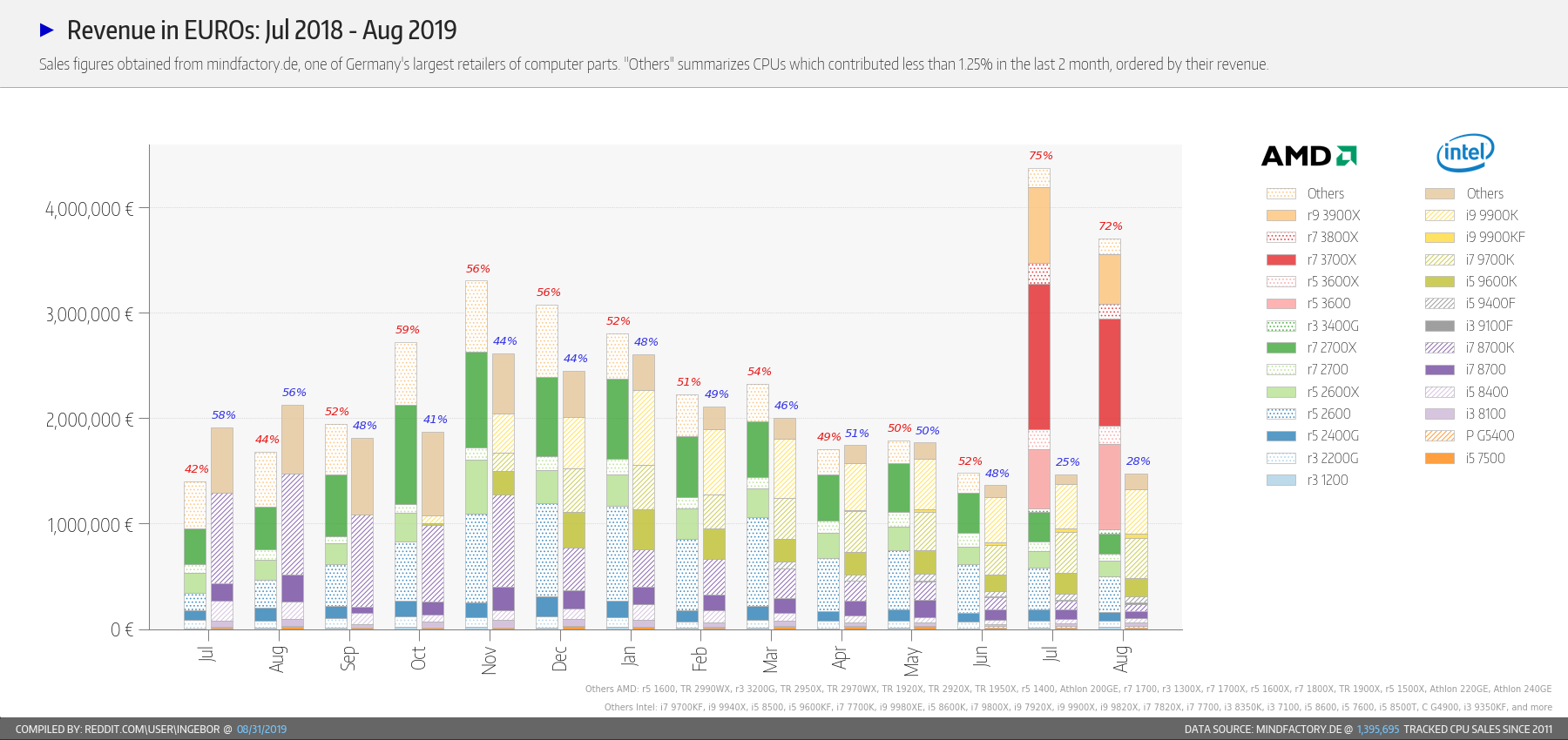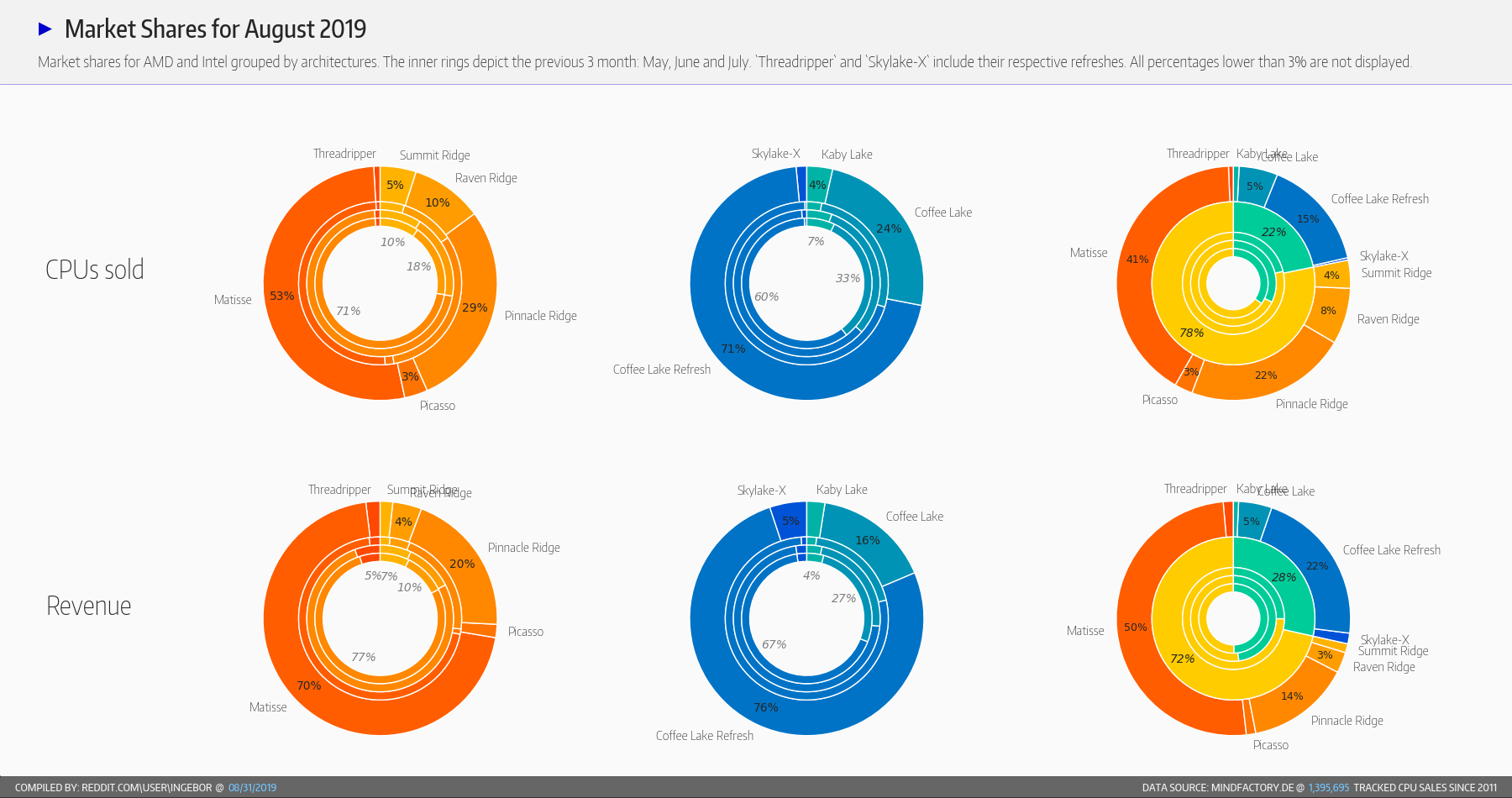The big picture: German hardware retailer Mindfactory has published their CPU sales and revenue figures, and they show that for the past year AMD had sold slightly more units than Intel – until Ryzen 3000 arrived. When the new hardware launched in July, AMD’s sales volume doubled and their revenue tripled, going from 68% to 79% volume market share and 52% to 75% revenue share – this is for a single major PC hardware retailer in Germany – but the breakdown is very interesting to watch nonetheless.

Not to be vindictive, though I believe it to be a very appropriate time for schadenfreude, Mindfactory’s hard data puts a hilarious spin on Intel’s sales development manager Troy Severson’s recent comments. “I'll be very honest, very blunt, say, hey, they've done a great job closing the gap, but we still have the highest performing CPUs in the industry for gaming, and we're going to maintain that edge.”
Credit where it’s due, the i9-9900K is incredibly powerful. The difference is that for Intel the 9900K and the 9700K are the two breadwinners of the line-up, while the Ryzen 9 3900X generated their combined revenue in July. AMD has dominated over the last two months in Germany.
Full disclaimer: German markets have historically been more biased towards Ryzen than American ones, and AMD’s sales will fall a bit before stabilizing, while Intel’s appear to have already plateaued. We rarely get a detailed view and breakdown of sales data as the one published by Mindfactory, which is representative of a portion of the German retail channel. To put things in perspective, in Amazon US the top 25 best selling processors comprise 9 Intel CPUs with the remainder being all Ryzen.
Some interesting things to note about the sales volume graph: a large portion of the market seemed to be lying dormant until Ryzen 3000 released, so it appears to be a favorite among long term purchasers.
Surprisingly, Ryzen 2600X and 2700 sales didn’t fall with the new release, while 2600 and 2700X sales did. Ranked, AMD’s most popular models are the 3600, 3700X, 2600, 3900X, and 2600X. Intel’s most popular are the 9900K, 9700K and 9600K.
The revenue figures are fascinating, demonstrating that Intel has been able to produce high-end CPUs that may be more profitable than AMD’s options until now. AMD’s most powerful options are slightly more profitable than Intel’s, yet because of the less profitable 3600 and 2600, Intel’s parts are on average more profitable.
We can also argue why AMD decided to shift 12-core and 16-core configurations from Threadripper to Ryzen: Threadripper would appear to be inconsequential revenue-wise. It only created as much revenue as AMD’s little Picasso APUs, which is quite curious, as AMD is not marketing those whatsoever and didn’t send out review samples. There appears to be significant demand for the cheaper 12-core Ryzen, however.
It’s clear that AMD’s Pinnacle Ridge parts (Ryzen 2000 series) still form an essential part of their revenue, effectively filling in for low-end Ryzen 3000. Intel operates much the same with Coffee Lake, particularly the 8700K still appealing to customers.
While Intel processors remain a good purchase in many circumstances and will rightly continue to sell well, what’s so exciting is that Intel finally has an undeniable equal in the CPU world. With AMD no doubt eager to press its advantage and Intel executives fighting furiously to develop a response, the future looks promising.
https://www.techspot.com/news/81695-amd-triumphing-over-intel-after-decade-second-best.html


